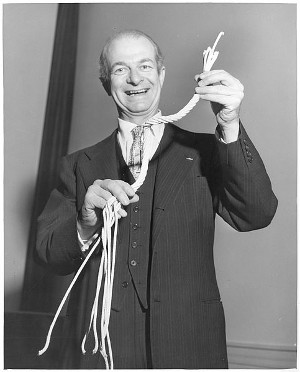
When Linus Pauling won his second Nobel Prize in 1962, he joked that receiving his second Nobel was less remarkable than receiving his first: The chance of anyone receiving his first Nobel Prize is one in several billion (the population of the world), while the chance of receiving his second is one in several hundred (the number of living people who have received one prize).
What’s wrong with this argument?
|
SelectClick for Answer |
Nobel prize winners are chosen independently of past awards, so if Pauling’s chance of winning one prize was (say) 1 in 3,000,000,000, then he’d have the same chance of winning the second, and his chance of winning two would be 1 in 3,000,000,0002. (Actually they’re considerably better than that — not everyone on Earth is equally deserving of the Nobel prize.)
If we knew that the Nobel committee would award the 1962 prize only to an existing laureate, then Pauling’s argument would hold.
(From The Ivan Morris Puzzle Book, 1972.)
|

